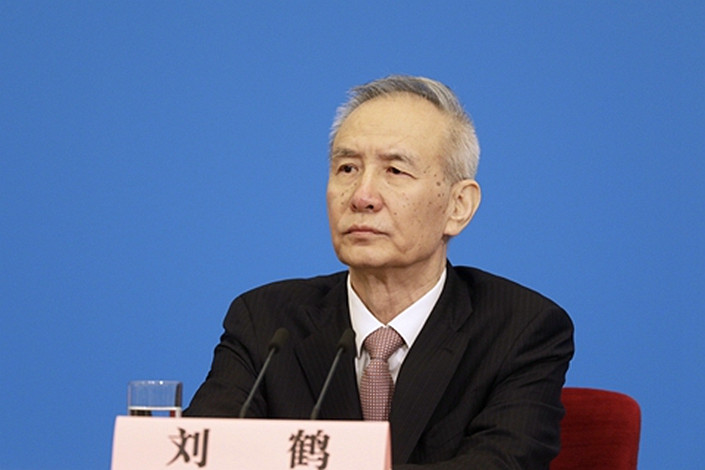No Breakdown in U.S.-China Trade Talks, China’s Top Trade Negotiator Says

Beijing’s top trade negotiator said trade talks with Washington did not “break down” even though negotiators could not reach a deal to prevent the United States from raising the tariff rate on Chinese imports.
The message was relayed by China’s Vice Premier Liu He on Friday after the latest round of high-level bilateral talks concluded in Washington.
Fears of a failed deal mounted after the U.S. went ahead and increased the tariff rate on $200 billion worth of Chinese products to 25% from 10% on Friday. The increase took effect after negotiators were unable to make sufficient progress toward a deal to end the trade dispute in the first day of talks in the U.S. capital on Thursday. The two-day talks were the 11th meeting between U.S. and Chinese officials since February last year.
China’s Ministry of Commerce said in a brief statement on Friday that “China deeply regrets” the U.S. decision to raise the tariff rate and “will have to take necessary countermeasures.” It did not give any indication of what countermeasures it might take.
Liu said Friday that Beijing and Washington had candid and constructive exchanges in the latest round of talks, and both agreed that momentum toward reaching a deal should carry forward.
“The negotiations didn’t break down,” Liu told reporters after the meetings. “Both parties clarified our stances over a series of issues and we discussed the next steps to take… on grounds of communication and collaboration.”
His remarks were echoed by Washington.
The U.S. and China held “candid and constructive conversations on the status of the trade relationship between both countries,” U.S. President Donald Trump tweeted Friday afternoon. “The relationship between (Chinese) President Xi (Jinping) and myself remains a very strong one,” he wrote, adding that conversations on the trade dispute would continue in the future.
Liu said it’s inevitable that difficult bilateral negotiations would have twists and turns and that China remains “prudently optimistic” about future negotiations. Before departing from Washington, the vice premier admitted that his delegation’s trip had been undertaken “under pressure.”
Officials from both sides have agreed to kick off another round of talks in Beijing soon, said Liu, without elaborating.
Liu said there were three major areas of disagreement in the negotiations: China’s demand for a complete removal of tariffs, while the U.S. wants to leave at least some tariffs in place; how much in goods and services China will be required to procure from the U.S.; and the intricacies of the wordings in the bilateral trade agreement.
As U.S. tariffs were the trigger for the trade dispute, China wants to abolish all relevant duties, Liu said.
When presidents Xi and Trump met in Argentina on December 1 after the G-20 summit, China agreed to purchase what Washington described as a “very substantial amount of products” from the U.S. to reduce the trade imbalance.
Liu said both parties now differ on how much China should procure. “We think this is a serious matter and we won’t concede easily.”
Last but not least, the vice premier said both sides have to work out the precise wording of the text of the potential trade pact. “Every country has its own dignity (to safeguard), and the wording must be balanced… We are working on this.”
Liu refuted allegations by President Trump and U.S. officials that China had “backtracked” or “reneged” after the 10th round of negotiations on commitments made during the previous rounds of talks. Trump cited the alleged backtracking as the reason for raising the tariff rate on Friday.
It’s natural for there to be certain changes in the details of a deal before final agreement, Liu said. “China didn’t backtrack (on our promises.) We have a different viewpoint on the expression of terms in the agreement.. and we wish to resolve this,” he said.
In the wake of the escalation of trade tensions, the U.S. Chamber of Commerce issued a statement Friday urging the two governments to move forward expeditiously and in good faith to “strike a high-standard, comprehensive, enforceable agreement and end the tariffs now in place.”
"Prolonging trade tensions and the escalation of tariffs are in neither country’s interest," it said.
Liu on Friday stressed that both countries are on the same page on their desire to reach a trade truce and that China remains firmly opposed to the trade war.
“But we are fully prepared (for the worst-case scenario),” he said. “To safeguard the interests of China, and those of our counterparts in the U.S. and the world, we are not afraid (of a trade war).”
Contact reporter Jason Tan (jasontan@caixin.com)

- PODCAST
- MOST POPULAR







